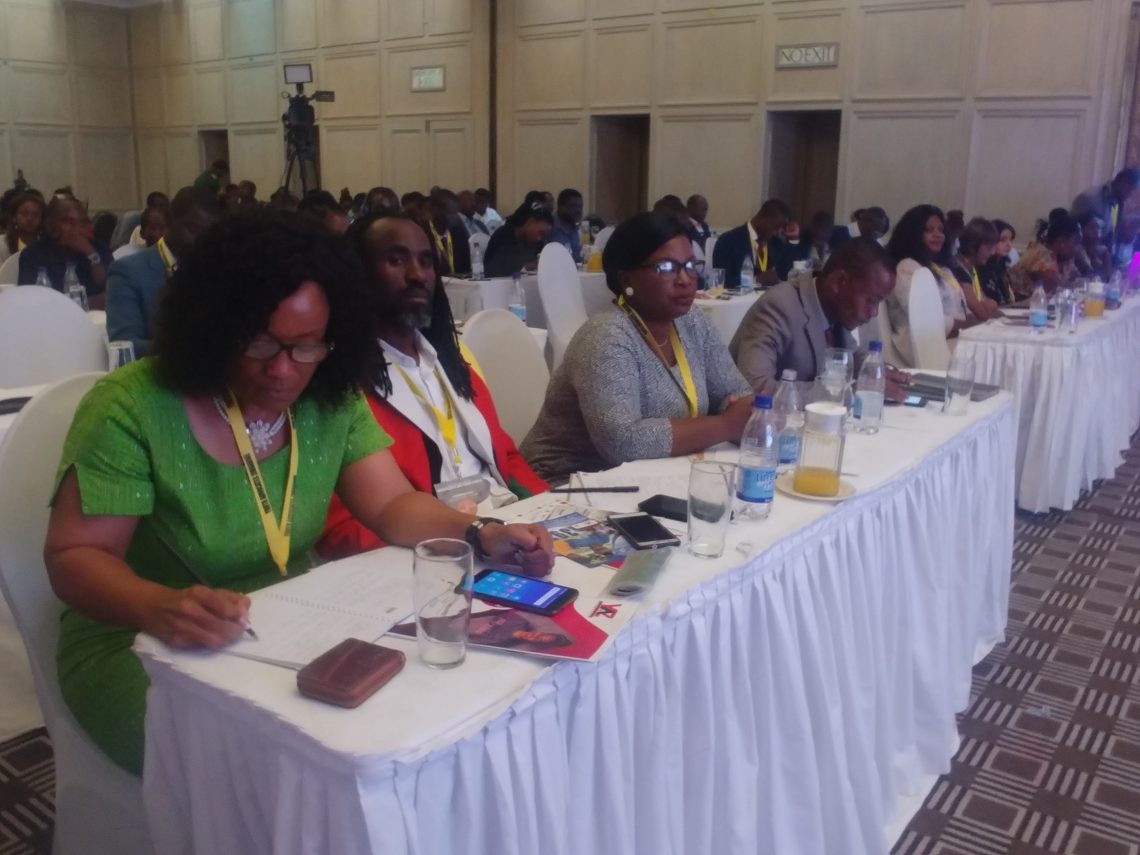By Byron Mutingwende
Investing in adolescents and young people is a critical ingredient for attaining the Sustainable Development Goals (SDGs), a youth meeting held in Harare has revealed.
The Youth Advocates Zimbabwe, National Aids Council and Ministry of Health and Child Care hosted the National High-Level Meeting to share best practices, innovations and skills transfer to reach the Eastern and Southern Africa (ESA) commitments, UNAIDS 90-90-90 goals and Sustainable Development Goals.
The High-Level Meeting ran under the theme: ‘’Unleashing Data and Partnerships for Best Practices, Innovations and Investing in Adolescents and Young People’’.
“This high-level event will provide a forum to orient partners on School Health Policy, CSE, SRH, share best practices, celebrate successes, and chart a course forward that help achieve targeted sustainable developmental interventions for adolescents and young people. It will ensure that data become part of the infrastructure for sustainable development, while showcasing the new partnerships, projects, and institutions that are leading the way,” said Tatenda Songore, the Director of Youth Advocates Zimbabwe in his opening remarks at the workshop.
Although strides have been made in Zimbabwe, evidence points to increasing rates of teenage pregnancy, high prevalence of child marriages, low levels of comprehensive knowledge about HIV prevention and increasing new HIV infections among adolescents and young people.
The High-Level Meeting brought together key stakeholders to generate political commitment and financial investment for fulfilling SDGs 1, 2, 3, 4, 5, 6 and 8 for better programs and policies.
It sought to share evidence-based approaches that go beyond the health sector, addressing the structural drivers that directly and indirectly increase young people and girls’ HIV risk, including poverty, gender inequality, sexual violence, and a lack of education as well as to create political momentum and attention to reinforce the need for reliable data for SRH/SGBV/HIV decision-making.
Walter Chikanya, the Director of the Zimbabwe Community Health Intervention Research (ZICHIRE) Project said the forum was good and relevant for its articulation of critical SRHR issues, especially using data and making sure the Parliamentarians got the data so that they could lobby for policy changes.
“The data will stimulate Parliamentarians to align laws such as Age for Sex and Age for Marriage that seems to be misaligned. This is also an opportune time to talk about youth representation in Parliament, in particular young women.
“The empowerment testimony by the young women was appropriate as it gives first hand information to Parliamentarians and the need to protect vulnerable girls’ rights. We need to align SDGs and our strategies and policies locally and most importantly the implementation and watchdog role by CSOs. CSOs need to be more organised and coordinated to allow for their effective advocacy and watchdog roles,” Chikanya added.
Razia Latif, the Patron of the Woman of Standard Global Business Network said overall, the data given was educational. She called on the data to have a more focused approach on menstrual health education.
“We also run the Disability Network in Goromonzi Rural where we focus on awareness and integration of youths in schools. We realized that there are no adequate wheelchairs or health facilities for youths with disabilities in the 25 wards of Goromonzi District,” Latif said.
Nadia Esof, the Director of the Zimbabwe Endometriosis Awareness Chapter said her organization is providing menstrual health and hygiene education, endometriosis awareness raising as well as the distribution of sanitary pads among girls in Goromonzi. Under the Woman of Standard Global Business Netowork where she is coordinator, Esof also participates in helping communities with food, clothing, as well as the installation of boreholes.
Endometriosis is a chronic gynaecological malfunction which causes heavy irregular periods, chronic pain, infertility, painful intercourse, depression, digestive and bowel problems, exhaustion, cysts, adhesions and can lead to abdominal organs sticking together.
176 million women and girls suffer from this disease worldwide and 1 in 10 are diagnosed. Diagnosis can take up to 8-10 years. Zimbabwe Endometriosis Awareness Chapter engages in strong awareness campaigns, and works with researchers working to find solutions for those affected with the disease to have a better quality of life.
Job Sikhala, the Member of the National Assembly for St. Mary’s said such meetings will result in strengthened commitments towards programmess and policies for improved SRH outcomes linking with education, social protection and other development outcomes for adolescents and young people.
“This provides new models for action partnering policy makers and young people to revolutionise service delivery in Zimbabwe. It also creates political momentum and attention to reinforce the need for reliable data for decision-making while bringing the power of the newest technologies to some of the world’s oldest problems, demonstrating the power of partnership and providing new models for action in the era of the data revolution,” Sikhala said.
The Zimbabwe Youth Council said drawing from global best practice, the Government of Zimbabwe and its partners seeks to harness the demographic dividend for economic growth, which is presented by its population structure in which the proportion of youth aged between 15 to 34 years stands at 36% and the 0 to 34 years constitutes 77%.
The Zimbabwe Youth Council recommended a review of legislation, policies and strategies pertaining to youth focusing on strengthening the policy and institutional environment for service delivery to the youth.
It also called on the promotion of social behaviour change and stimulating the demand for health services by the youth.
The conference was made possible with support from DREAMS Innovation Challenge project funded by Johnson and Johnson advancing Data4DREAMS. Right Here, Right Now Zimbabwe an advocacy platform supported the event to advance the effective implementation of the School Health Policy through Skills Development for the Parliamentarians. Restless Development through the Amplify Change Youth Network Project supported a session on SRHR skills development for Parliamentarians.
